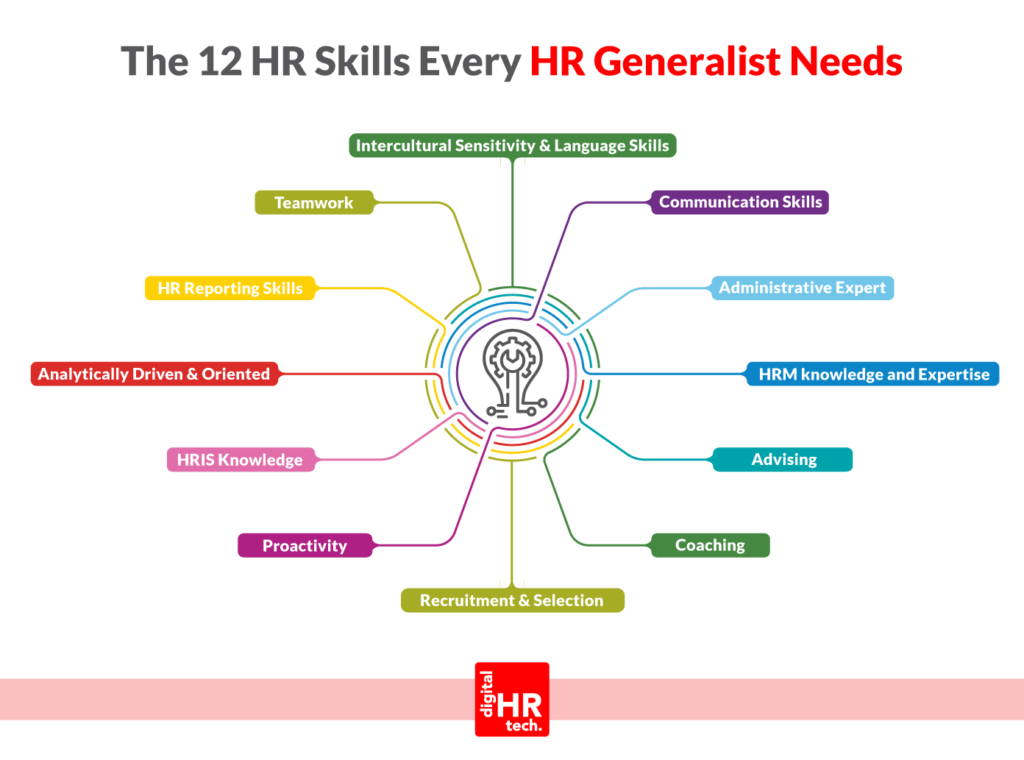Updated December 2025
The field of human resources has transformed quite dramatically over the past few years. We used to think of HR as primarily about handling employee discipline problems, enforcing workplace policies, and hiring/firing people.
But as global business competition grows ever more intense, and new generations join the workforce, we’re seeing a major shift in the reality and perception of HR.
Human resources professionals are joining strategy sessions with CEOs and other C-suite executives to discuss the growing importance and impact of employee engagement, talent acquisition, and skills development.
HR has become an essential and integral part of business success in every sector of the economy.
Is human resources the right career for you? Consider these key points while making your decision.
1. What are your human resources career options?
Human resources is a vast field. Most people are aware that HR roles break down into two main categories: generalist and specialist. But within these categories, there’s quite a bit of variety, including various entry-level and advanced positions.
Right from the start, it’s wise to look at your background, education, goals, and interests to see which type of human resources career fits you best.
Here are a few examples:
☑️ Human Resources Assistant/Coordinator. This is a typical entry-level generalist role. Starting out in this position will give you exposure to several key HR activities, including recruitment, hiring, onboarding, payroll adjustments, vacation approvals, and performance evaluations.
☑️ Training and Development Specialist. As the name suggests, this is a specialized HR role. There are both entry-level and senior versions of this position, which focus on fostering talent and creating professional development initiatives within an organization. At the senior level, you would be reporting to management on talent retention, turnover, and employee engagement—considered key factors in business success.
☑️ Talent Acquisition Specialist: This is becoming a very important role in the HR industry. In many sectors, there are far more jobs than available applicants. Companies are in tight competition to recruit the most desirable candidates. The talent acquisition specialist plays a key role in helping companies identify, attract and hire the best people.
☑️ Human Resources Manager: Another generalist role, the HR manager is responsible for several important functions. In this role, you would oversee recruitment, hiring, and onboarding procedures, possibly supervising a team of HR assistants.
HR managers also handle compliance, employee relations, and evaluations. Crucially, they report to senior management on how HR policies align with over-arching business needs and goals. Typically, it takes several years of experience to qualify for HR manager positions.
Other possible HR job titles include Compensation and Benefits Manager, Retention Specialist, Trainer, Risk Management Specialist, and Chief HR Officer.
Compare more HR careers here: Human Resources Careers: Explore Entry-level and Advanced Roles
2. What Skills Will You Need to Succeed in HR?
We just talked about how many different types of human resources jobs there are. So, clearly there’s no “one-size-fits-all" list of skills and strengths that apply to every single position.
However, there are certain well-recognized traits you will need to build a successful human resources career, no matter which path you choose. These include:
☑️ Excellent communication and “people skills”
☑️ Conflict resolution
☑️ Negotiation
☑️ Problem-solving
☑️ Confidence
☑️ Presenting/public speaking
☑️ Knowledge of organizational psychology
☑️ Advising/coaching
☑️ Discretion and diplomacy
☑️ Organization
☑️ Attention to detail
☑️ Data analysis
☑️ Business acumen
Human resources professionals must balance business objectives with the needs of real people. They must be great listeners, persuasive speakers, proactive problem-solvers, and critical thinkers.
No matter which HR career you choose, these skills will come into play. More than anything, you need a genuine interest in making people’s lives better at work—and helping companies attract and nurture their most important asset: human capital.
 Image source: DigitalHRtech
Image source: DigitalHRtech
3. Are you Genuinely interested in business management?
We already mentioned “business acumen” on our list of essential HR traits—but it’s worth breaking this down further, because the skill is so important. Here’s why.
HR leaders need to understand their company’s business model, strategic plan, key performance indicators, and long-term goals. And they need to understand how recruiting, hiring, training, engaging with, and retaining talent fits into that framework.
They need to be able to have those conversations with CEOs and other executives, and then bring it back to the operations level, where they’re dealing with everyday employee issues and challenges.
Are you interested in business management? Are you prepared to strengthen your understanding of clients, ROI, cost-benefit, and growth strategy? Are you ready to work with senior executives and business owners to ensure HR policies are aligned with company objectives?
More and more, we’re seeing human resources managers involved in these conversations and high-level decision-making. If you want to pursue leadership roles in HR, you’ll need deep knowledge of how your company operates and grows.
BLR® founder Bob Brady boils it down well:
“HR is a creature of, and serves, the business strategy. It’s important for HR people to know what that strategy is and what makes the business tick so the approach to HR can be tailored accordingly...
“Never think of HR in isolation. Because if HR professionals think of themselves as ‘just HR,’ that’s what the rest of the organization will think, too.”
4. Are You Transitioning From another Field?
Many students in the human resources course offered by Kompass Professional Development are transitioning from other fields. Ours is an online course designed for people who are moving into HR roles and need quick training in key competencies.
Many of our students are business owners, managers, and newly appointed HR professionals with little or no previous training in HR. Others are looking to start a human resources career and want to get a handle on the fundamentals.
It’s actually very common for HR professionals to come from diverse work and educational backgrounds. Many people currently working in human resources do not have an HR degree or any type of professional HR designation.
People coming from business administration backgrounds, or those with training in psychology, sociology, education, or other social sciences often find their way into HR roles.
Consider how your previous education and work experience relates to human resources management. What do you bring to the table? With transferable skills and some additional training, you could transition quite smoothly into an HR career.
5. Pros & cons of working in Human Resources
Every career has its ups and downs, and HR is no exception. There are some very well-known pros and cons to this career path. Here are a few of the most common.
☑️ Pro: HR professionals can make a significant positive impact in people’s lives. Helping people achieve their professional goals and succeed at work is incredibly rewarding.
☑️ Con: Many HR professionals have to deal with conflict. Mediating disputes and doling out discipline can be quite stressful. Getting caught up in workplace politics is another commonly reported con within the HR industry.
☑️ Pro: This work has a direct impact on the overall productivity and success of the organization. There’s a real sense of purpose in helping a company effectively manage its workforce.
☑️ Con: Getting colleagues on board with new and improved HR policies can be very challenging. People are often slow to accept change. Many HR managers, particularly in small and new businesses, must sometimes work very hard to get buy-in from all stakeholders.
☑️ Pros: There is a lot of diversity in this work. HR managers get to interact with people from all walks of life, and there are always new challenges to overcome. There’s never a dull moment in HR!
☑️ Con: Keeping up with compliance changes. HR managers must stay on top of relevant workplace legislation to protect their employers from lawsuits and other legal problems. For some, this is a welcome challenge; for others, it's a source of stress.
☑️ Pro: This is a fairly well-paying field. According to the Government of Canada Job Bank, the median salary for HR professionals is about $69,000. And HR managers earn a median salary of $120,000.
6. What Training do You need to get started in HR?
Given that HR professionals come from such varied educational and professional backgrounds, what kind of training would you need to launch a career in this field?
If you’re just starting out, it makes sense to explore bachelor's degrees in human resources, business, or organizational psychology.
But if you’re transitioning into a human resources career from some other field and don’t want to earn another degree, there are alternatives. You might consider an HR certificate or diploma program, which will help you learn the fundamentals and gain access to an entry-level or intermediate HR position.
For example, at Kompass we offer an online human resources course that trains HR newcomers in several key areas:
☑️ Compensation, benefits, and other rewards
☑️ Compliance
☑️ Leadership
☑️ Conflict resolution techniques and progressive discipline measures
☑️ Recruitment and selection
☑️ Performance evaluation
☑️ Employee relations
This training is designed for people who are transitioning into an HR career or are already leading a team and require additional HR skills.
Many students in this course are business managers, owners, and administrators who are taking on the HR function at work (but lack official training in this role).
Click below to explore the Human Resources Management course in more detail. Meet the instructor, see pricing, and chat live with an advisor.








